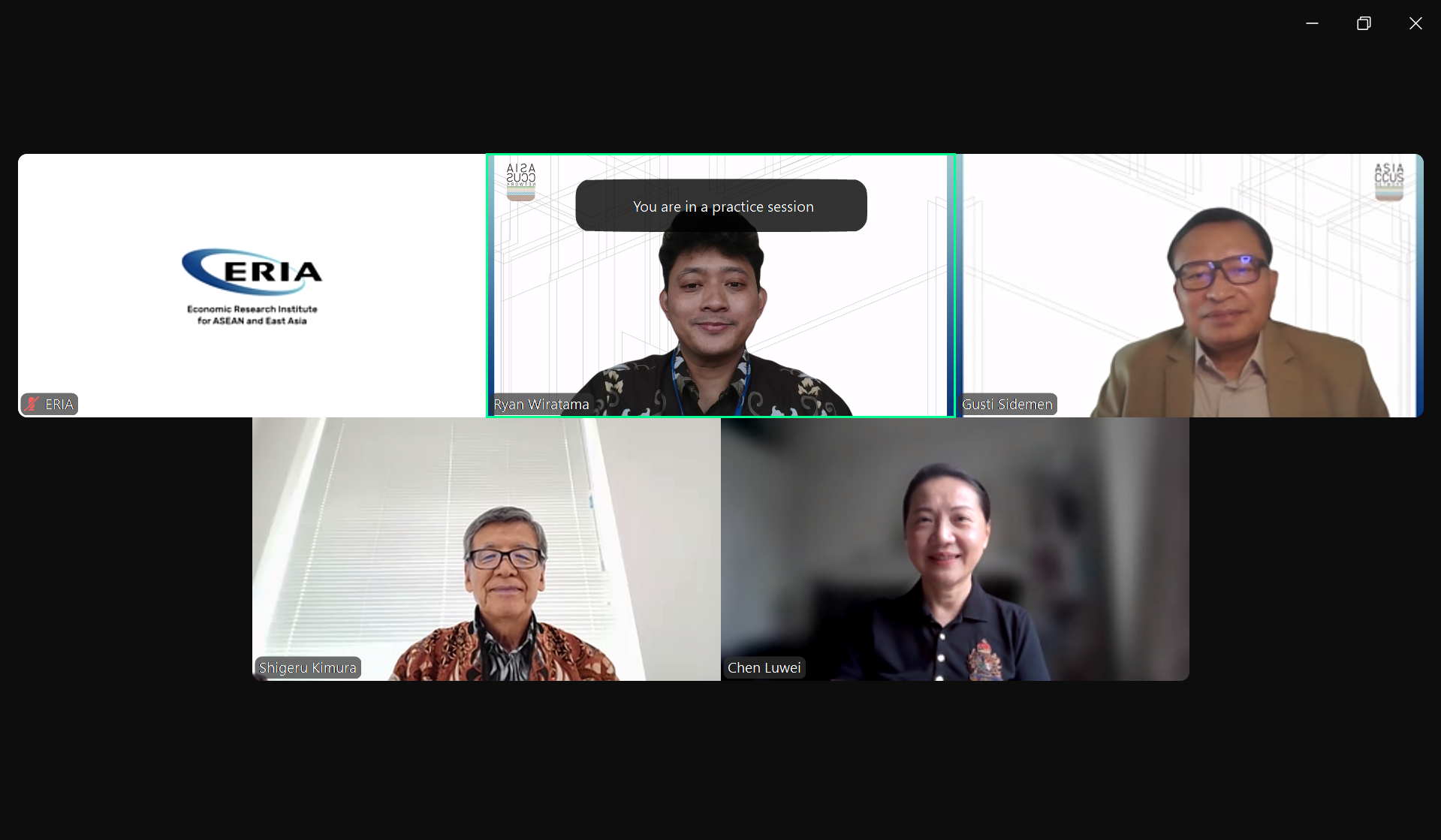Knowledge Sharing Conference

Advancing Carbon Recycling in Asia: Insights from A*STAR’s Research and Industry Collaboration
Carbon capture and utilization (CCU) is gaining momentum as a key strategy to mitigate climate change and transition toward a low-carbon economy. In a recent webinar, Dr. Chen Lui from Singapore's Agency for Science, Technology and Research (A*STAR) shared insights into the latest developments in CCU technologies, the challenges in commercialization, and the importance of industry-academia collaborations. Moderated by Dr. Gusti, the session provided an in-depth look at how CCU can play a transformative role in the chemical and energy sectors.
A*STAR is at the forefront of Singapore’s efforts to decarbonize its industrial sector, particularly on Jurong Island, which accounts for over 50% of the country’s total carbon emissions. The agency is focused on developing innovative solutions that bridge the gap between laboratory research and industrial deployment.
Through its Institute of Sustainability for Chemicals, Energy, and Environment, A*STAR is working on:
- Developing carbon capture and conversion technologies to create valuable chemicals and fuels.
- Scaling up CCU solutions through research infrastructure and industry partnerships.
- Collaborating with international stakeholders to accelerate technology commercialization.
Dr. Lui presented several breakthrough technologies in CO₂ conversion, emphasizing that carbon should be seen as a resource rather than waste. Some of the major advancements include:
1. CO₂ to Methane (Methanation)
A*STAR, in collaboration with IHI Japan, has successfully developed a highly stable catalyst for methanation, allowing CO₂ to be converted into synthetic natural gas. This technology has been commercialized by IHI, with applications in power generation and transportation.
2. CO₂ to Methanol
Methanol is a crucial chemical used in various industries and as a potential sustainable aviation fuel (SAF). Companies like Mitsubishi Gas Chemical and Carbon Recycling International are scaling up CO₂-to-methanol technology, and A*STAR is developing new catalysts to increase efficiency and lower costs.
3. CO₂ to Sustainable Aviation Fuel (SAF)
With aviation contributing 2-3% of global CO₂ emissions, SAF is essential for decarbonizing air travel. A*STAR and IHI are advancing Fischer-Tropsch synthesis to convert CO₂ into aviation fuels, which could be commercially available by 2030.
4. CO₂ to Hydrocarbons & Chemicals
A*STAR is researching CO₂-to-gasoline conversion, light olefins for plastic production, and aromatic compounds for industrial use. Successful pilot projects in China and Japan demonstrate the feasibility of these processes.
Despite the promise of carbon recycling, several barriers hinder its widespread adoption:
- High Hydrogen Costs: 70% of CO₂ conversion costs come from green hydrogen production, which remains expensive.
- Energy-Intensive Processes: Current CCU technologies require high-pressure operations, increasing costs.
- Catalyst Development: New catalysts are needed to improve efficiency, reduce costs, and enhance stability.
- Investment and Policy Support: Intellectual property concerns, regulatory frameworks, and long commercialization timelines pose challenges for scaling up CCU.
Following the presentation, the discussion focused on the economic viability, policy considerations, and collaborative efforts needed to bring CCU technologies to market.
1. The Role of CCU in Climate Mitigation Policies
One participant asked whether CCU is considered part of global carbon reduction targets, particularly under the Intergovernmental Panel on Climate Change (IPCC). Dr. Lui explained that CCU is classified as an industrial mitigation strategy rather than carbon removal. However, life cycle assessments (LCA) are essential to determine whether specific CCU applications achieve carbon neutrality or even negative emissions.
2. Economic Challenges of CO₂-to-Fuel Technologies
A key challenge raised was the high cost of CO₂-to-methanol and CO₂-to-fuel technologies, making commercial adoption difficult. Dr. Lui acknowledged this, emphasizing that the cost of green hydrogen remains the biggest barrier. Advances in electrolysis efficiency, process optimization, and carbon pricing policies will be critical in making CCU economically viable in the coming decade.
3. Commercialization Timeline for CCU Technologies
When asked about which CCU technologies could become commercially available within 10-15 years, Dr. Lui highlighted:
- Methanation and CO₂-to-methanol as already commercialized by IHI and other companies.
- CO₂-to-SAF technology as being targeted for commercial deployment by 2030.
- CCU-based olefins and hydrocarbons are at pilot-scale testing and could reach commercialization by 2035.
4. The Importance of Public-Private Collaboration
A participant inquired about how A*STAR's collaboration with IHI and other partners has led to successful technology deployment. Dr. Lui emphasized that trust, long-term planning, and clear intellectual property agreements are crucial for successful partnerships. A*STAR’s collaboration with IHI and NEDO Japan serves as a model for industry-research cooperation, accelerating CCU deployment in Asia.
The webinar reinforced that carbon utilization is an essential part of the net-zero transition, with growing momentum across Asia. However, for CCU to become a viable decarbonization strategy, investment in hydrogen production, catalyst innovation, and supportive policy frameworks is necessary.
Dr. Lui’s key takeaways:
- CCU technologies are advancing rapidly, with methanation and CO₂-to-methanol already reaching commercialization.
- Cost reduction in hydrogen production is critical for economic feasibility.
- Public-private collaboration is key to scaling up carbon recycling initiatives.
- Policy incentives and regulatory frameworks will determine the pace of CCU adoption.
With continued investment and collaboration, carbon recycling technologies could play a transformative role in achieving a low-carbon future. The insights from this webinar underscore the urgent need for research, innovation, and cross-sector partnerships to accelerate the deployment of CCU solutions in Asia and beyond.